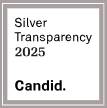Crack the Code of Medical Terms: Learn the 3 Key Components to Elevate Your Health Advocacy IQ

Patients and caregivers also ask
The importance of medical terms in healthcare for patients and caregivers lies in their ability to enhance understanding and communication. Medical terms provide precise language that helps patients and caregivers accurately describe symptoms, understand diagnoses, and follow treatment plans. This knowledge empowers them to engage more effectively with healthcare providers, make informed decisions, and advocate for their own or their loved ones’ health.
Medical terms can improve patient and caregiver outcomes by facilitating clear and accurate communication with healthcare providers, leading to better understanding and adherence to treatment plans. When patients and caregivers comprehend medical terminology, they can ask informed questions, interpret medical advice correctly, and recognize important signs and symptoms, ultimately enhancing the quality of care and reducing the risk of misunderstandings or errors in treatment.
The key benefits of understanding medical terms include:
- Improved Communication: Enables clear and precise interactions with healthcare professionals, reducing misunderstandings and enhancing the quality of care.
- Informed Decision-Making: Empowers patients and caregivers to make educated choices about treatments, procedures, and healthcare plans.
- Enhanced Health Literacy: Facilitates better comprehension of medical reports, prescriptions, and instructions, leading to more effective management of health conditions.
- Proactive Healthcare Management: Allows individuals to actively participate in their health care, ask relevant questions, and advocate for their needs confidently.
- Reduced Anxiety: Demystifies complex medical language, making healthcare experiences less intimidating and more manageable for patients and caregivers.
Medical terms contribute to effective health management in several ways:
- Accurate Communication: They ensure clear and precise communication between patients, caregivers, and healthcare professionals, minimizing the risk of misunderstandings and errors.
- Informed Decision-Making: Understanding medical terms allows patients and caregivers to comprehend diagnoses, treatment options, and medical procedures, enabling them to make well-informed decisions about their healthcare.
- Efficient Navigation of Healthcare Systems: Familiarity with medical terms helps patients and caregivers navigate medical records, insurance documents, and healthcare resources more effectively.
- Enhanced Patient Engagement: Patients who understand medical terminology are more likely to actively participate in their care, ask relevant questions, and follow medical advice accurately.
- Better Coordination of Care: Clear understanding of medical terms aids in the coordination of care among different healthcare providers, ensuring consistent and cohesive treatment plans.
Patients and caregivers should learn about medical terms for several important reasons:
- Empowerment: Understanding medical terms empowers patients and caregivers to actively participate in healthcare discussions and decision-making, leading to better health outcomes.
- Improved Communication: Knowledge of medical terminology ensures clearer communication with healthcare providers, reducing misunderstandings and enhancing the quality of care.
- Informed Decisions: Being familiar with medical terms helps patients and caregivers make informed choices about treatments, medications, and healthcare plans.
- Better Care Coordination: Understanding medical language aids in coordinating care among various healthcare professionals, ensuring that all parties are on the same page regarding the patient’s health needs.
- Reduced Anxiety: Familiarity with medical terms can reduce anxiety and fear by making medical information more accessible and understandable, leading to greater confidence in managing health conditions.
Why Learning Medical Terms Matters (And How It Changes Everything)
Ever read a doctor’s report and thought, “I have no idea what this means”?
You’re not alone. Medical terms can feel like a different language—cold, confusing, and impossible to decode. And when the stakes are high, that confusion turns into fear.
Meet Gina.
She’s a daughter trying to help her father recover after a hospital visit. She reads his discharge notes: “HTN, CAD, Rx metoprolol BID.” Her stomach drops. None of it makes sense. She doesn’t want to ask the wrong question, so she says nothing—and leaves the clinic feeling helpless.
And that’s exactly how many people feel.
They want to help. They want to understand. But healthcare often speaks in abbreviations, acronyms, and jargon—without handing you a translator.
Therefore, learning medical terms isn’t just a good idea—it’s one of the most empowering things you can do for yourself or someone you love. Understanding the language of healthcare opens the door to clearer conversations, better decisions, and more confident care.
But here’s the truth: This language isn’t off-limits. It’s not reserved for doctors or medical insiders. You can learn it. And once you do, you’ll never look at a medical report the same way again.
Let’s go back to Gina. That one confusing sentence?
“Rx: Metoprolol 50mg BID for HTN.”
Let’s break it down:
- Rx = Prescription
- Metoprolol = A heart and blood pressure medication
- BID = Twice a day
- HTN = Hypertension (high blood pressure)
So now, Gina understands: Her dad was prescribed a medication to take twice daily to manage his high blood pressure. She can confidently follow the instructions—and help him do the same.
It didn’t take a dictionary. It just took a few terms, a little context, and the willingness to ask questions.
So, where do you start?
Start with what you see most. Here are some common terms that show up in everyday healthcare:
- BP = Blood Pressure
- HR = Heart Rate
- DM = Diabetes Mellitus
- CPR = Cardiopulmonary Resuscitation
- MRI = Magnetic Resonance Imaging
- UTI = Urinary Tract Infection
You don’t need to memorize them all at once. Just start paying attention. Keep a list. Ask your provider to explain something if it’s unclear. And trust that over time, these terms will start to make sense.
A few tips to build your confidence:
- Use your records. Look at your after-visit summaries or prescriptions and highlight the unfamiliar words.
- Look things up. Use a medical dictionary or trusted health website.
- Ask questions. Never hesitate to ask, “What does this mean?”
- Write them down. Create your own cheat sheet. Even five or ten terms can make a huge difference.
Why this matters
Learning medical terms isn’t about showing off or speaking like a doctor. It’s about understanding what’s happening with your body or your loved one’s care. It’s about catching mistakes, asking better questions, and feeling prepared instead of panicked.
Most of all—it’s about turning that moment of confusion into a moment of clarity.
Just like Gina did.
🧠 3 Key Components for Understanding Medical Terms
1. Break It Down—Literally
Most medical terms are like puzzles made of smaller parts: prefixes, roots, and suffixes. Once you know the pieces, you can decode the whole word.
For example:
Cardi = heart
-itis = inflammation
Put them together: carditis = inflammation of the heart.
📌 Tip: Keep a small reference card or cheat sheet for common word parts—you’ll start spotting patterns fast.
2. Context Is Everything
Acronyms and terms can mean different things depending on where and how they’re used. “CA” might mean cancer in one report and calcium in another. Look at the surrounding words for clues, and when in doubt—ask.
🗣️ Tip: Don’t feel awkward asking your provider, “In this case, what does this term mean?” That question shows you’re engaged—and providers respect that.
3. Start With What Matters to You
You don’t need to learn everything all at once. Begin with the terms that show up in your health journey—or a loved one’s. If you’re managing high blood pressure, start by learning terms like BP, HTN, or ACE inhibitors. Learning is easier (and more meaningful) when it’s connected to real-life needs.
📓 Tip: Create a simple glossary from your medical paperwork. Each new visit adds to your growing knowledge.
Next up: We’ll look at medical jargon—the kind of everyday words that take on a whole new meaning in healthcare.
Do you want to discuss your score?
Disclaimer: This education was brought to you today by The Patient Better Project Inc., a 501(c)(3) organization dedicated to reshaping the way patients and caregivers navigate care. We are committed to empowering individuals with the knowledge and tools necessary to take control of their health journeys, ensuring that everyone can access the care they need with confidence and clarity.
The information provided here is for educational and entertainment purposes only. It is not intended as, nor should it be considered a substitute for professional medical advice, diagnosis, or treatment. Always seek the advice of your physician or other qualified health provider with any questions you may have regarding a medical condition. If you think you may have a medical emergency, immediately call 911 or your local emergency number.
For Search Engines
This article, "Crack the Code of Medical Terms: Learn the 3 Key Components to Elevate Your Health Advocacy IQ," aims to demystify medical terminology, acronyms, and jargon, empowering readers to navigate the healthcare system with confidence. By breaking down complex medical language, the article equips patients and caregivers with the knowledge needed to communicate effectively with healthcare professionals and make informed healthcare decisions.
